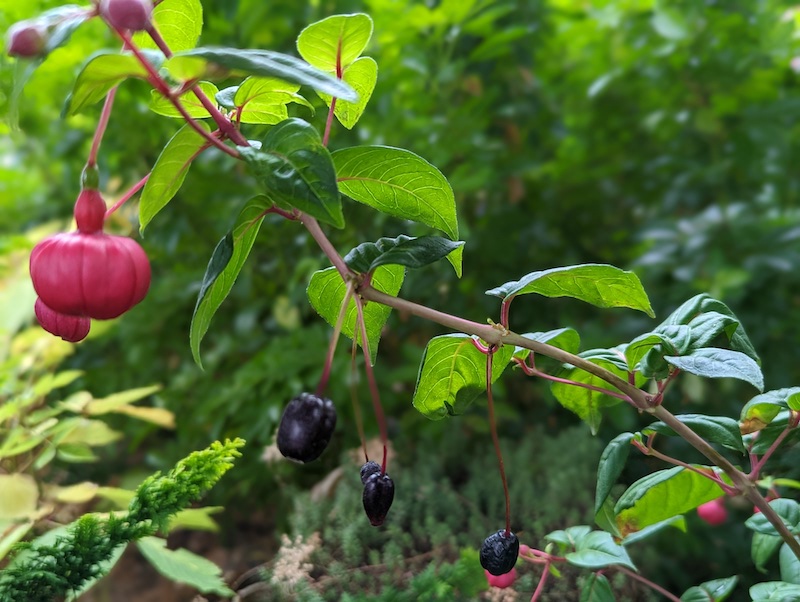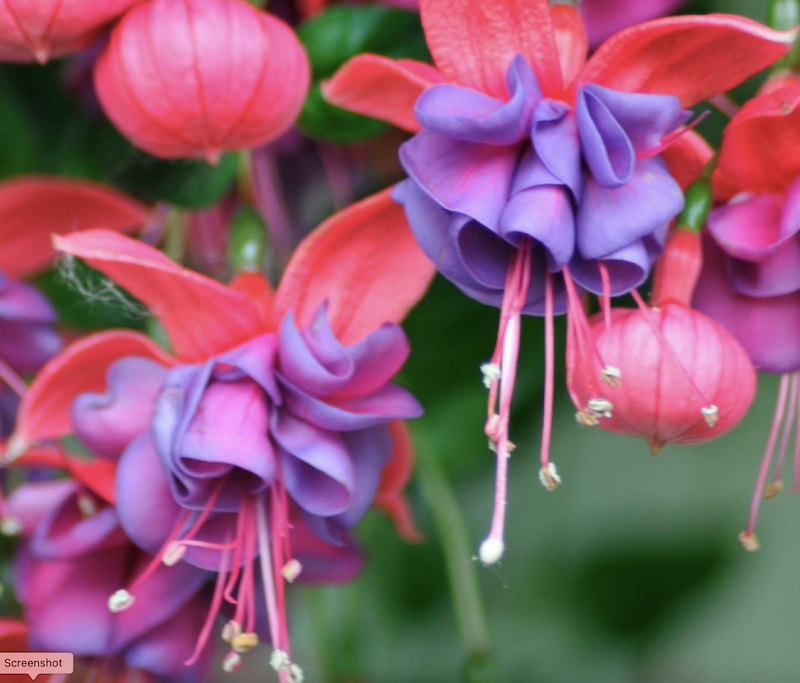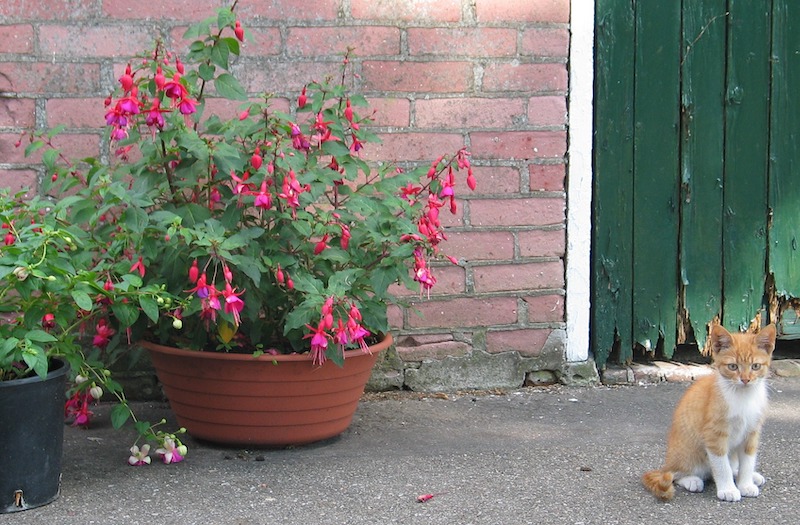Fuchsia is not a poisonous plant for humans or most animals. The flowers and foliage do not cause contact dermatitis or more severe reactions. The decorative flowers can be used as an edible garnish on food with little fear of causing an adverse reaction. Most varieties will produce an edible berry-like seed pod. These berries are regularly harvested and eaten in the sub-tropical regions where Fuchsia is native.

Are Fuchsias Poisonous to Children?
Fuchsia is not poisonous or dangerous to any age or size of a human. If you are concerned your child may have ingested a large amount of Fuchsia, contact your family doctor or local poison control hotline. You will receive information and a plan for home treatment.

Are Fuchsias Poisonous to Dogs?
Dogs and puppies can safely nibble on the Fuchsia plant without fear of a bad reaction. Plants that have been treated with pesticides or chemical fertilizers may be harmful. If your dog has eaten a large amount of Fuchsia and you use chemical pesticides (conventional or organic), make sure to contact your veterinarian as soon as possible for further advice.
Are Fuchsias Poisonous to Cats?
Cats are not affected by Fuchsia plants. Nibbling or rubbing up against the plants will not cause an adverse reaction. Growing Fuchsia in hanging baskets makes this plant even harder for cats to disturb.

Are Fuchsias Poisonous to Other Animals?
Livestock and other animals are more likely to come across the native types of Fuchsia that are commonly called Fuchsia but not in the same genus. Commonly called California fuchsia, this plant is an Epilobium and part of the Willowherb family. It grows above zone 8a in areas of dry hillside and scrubby brush throughout the Western United States. The ornamental Fuchsia grown for containers and hanging baskets is not typically found in the grazing areas for livestock. Chickens that do come into contact with Fuchsia will not be harmed in any negative way.
Symptoms Of Fuchsia Poisoning
Fuchsia is not poisonous, but overindulging in any plant can cause a bad reaction. Stomach upset, vomiting or diarrhea are common signs. If you garden using chemical pesticides or fertilizers, these products could cause a reaction. Contact your local poison control hotline or family doctor for advice and a treatment plan.
Here are some common symptoms to look out for in chemical poisonings:
- Irritation of mouth or hands
- Nausea
- Vomiting
- Diarrhea
- Shortness of breath
- Discoloration of skin
Preventing Fuchsia Poisoning
Fuchsia is often grown as a container plant that is easily moved out of the areas in which children or pets play. The plant is even more challenging to access if it is grown in a hanging basket. We recommend using organic fertilizers, which are less harmful than other fertilizers if Fuchsia is swallowed. Using organic or conventional pesticides will leave a residue either on the plant or systemically inside the stems and flowers. Plants treated with pesticides should always be kept away from pets and children.
Pet Poison Helpline
If something happens to your furry friend, and you suspect they are suffering from Fuchsia poisoning, there is a poison control hotline to call for 24/7 vet advice. It is called the Pet Poison Hotline, and its phone number is (855) 764-7661.
Sources:
"Are all fuchsia plant berries edible?" Ask Extension. ask2.extension.org
"Honeysuckle Fuchsia." American Society for the Prevention of Cruelty to Animals. aspca.org
 |
Author Robbin Small - Published 9-16-2022 |


